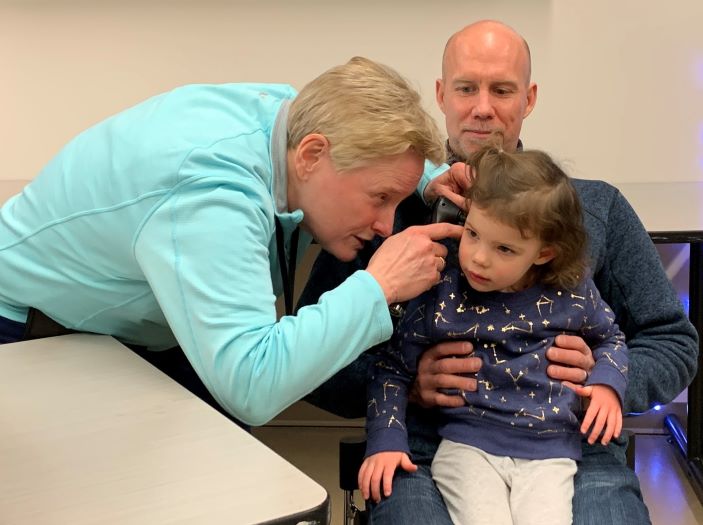

MD Susan Pearson Ear, Nose and Throat (ENT)
In infants and toddlers, signs and symptoms are fever, pulling on one ear, being fussy or less active, lack of appetite, vomiting or diarrhea and decreased or delayed speech and language development. Older children may have ear pain, temporary loss of hearing and regression or lack of progression of speech and language.
If you think your child has an ear infection, see your primary care provider or go to Urgency Care. They will do an exam and look in your child’s ears.
Antibiotics can treat ear infections, but they are not always the answer. Antibiotics kill the bacteria that cause some ear infections. However, many ear infections are caused by viruses. Antibiotics do not work on viruses. Research shows that many children heal from ear infections without medicine. Every time we take antibiotics; bacteria can change and evolve to become resistant to the antibiotic. To help antibiotics remain effective, it’s important to only take antibiotics when truly needed.
In general, physicians tend to prescribe antibiotics in infants younger than 2 years old. Your provider may recommend waiting a couple days before taking antibiotics if your child is older than 2 years old, generally healthy, pain and fever are not severe, eardrum is not bulging, and fever is lower than 102 F. Let your provider know if symptoms worsen or fluid is draining from the ear. In addition, your provider will consider your child’s general health and number of ear infections.
To help your little ones feel better, give them acetaminophen (Tylenol) or ibuprofen (Advil) for pain and fever. Do not use aspirin as it can be dangerous for children.
If your child gets a lot of ear infections or is speech delayed, ask your primary care provider for a referral to the Ear, Nose and Throat department.
As a Pediatric Ear, Nose and Throat specialist, I treat children with frequent ear infections and perform ear tube surgeries when needed. Ear tubes are placed in the eardrums to drain fluid, relieve pressure, help prevent future ear infections, improve hearing and speech and language development.
We can discuss the best options to help your child be healthy and hear well!
This article is for informational purposes only. Consult a healthcare professional for medical advice and diagnosis.